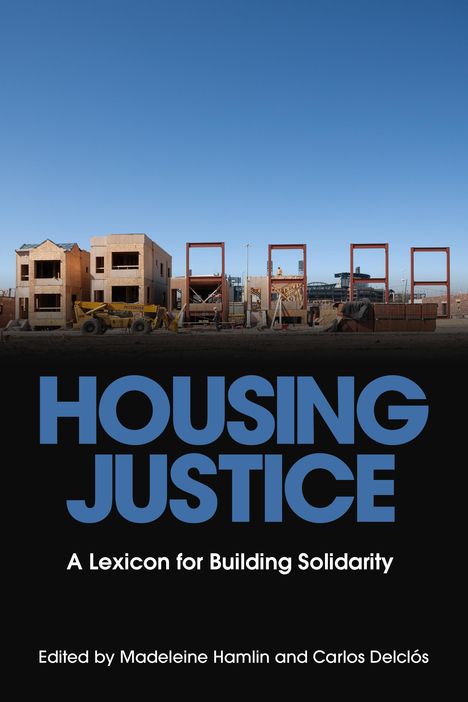Housing Justice, Kartoniert / Broschiert
Housing Justice
- A Lexicon for Building Solidarity
Sie können den Titel schon jetzt bestellen. Versand an Sie erfolgt gleich nach Verfügbarkeit.
- Herausgeber:
- Madeleine Hamlin, Carlos Delclós
- Verlag:
- PM Press, 04/2026
- Einband:
- Kartoniert / Broschiert
- Sprache:
- Englisch
- ISBN-13:
- 9798887441740
- Artikelnummer:
- 12367364
- Umfang:
- 304 Seiten
- Erscheinungstermin:
- 14.4.2026
- Hinweis
-
Achtung: Artikel ist nicht in deutscher Sprache!
Klappentext
Housing Justice: A Lexicon for Building Solidarity provides an accessible, future-facing lexicon for housing scholars, practitioners, and activists.
At a time when the housing question is being reshaped by financialization, dispossession, displacement, and resistance across global contexts, this volume offers a critical vocabulary grounded in contemporary scholarship and struggle. Emerging from the eighth Antipode Institute for the Geographies of Justice, and shaped by a translocal editorial collective, the book draws together contributions from scholars and organizers working across multiple geographies and traditions of housing activism. Rather than offering closed definitions, each entry synthesizes current debates while tracing the political genealogies, conceptual tensions, and geographic specificities that shape how terms are used---and contested---across contexts, movements and disciplines. Contributors draw from case studies and organizing experiences around the world, foregrounding the complex entanglements of housing with racial capitalism, settler colonialism, migration control, and state violence.
The result is not a static reference work, but a living archive of concepts that circulate within and between academic inquiry and political practice. From foundational terms like "eviction," "property," and "social housing" to emergent ones such as "carceral shelter," "digital / material," and "déracinement," Housing Justice: A Lexicon for Building Solidarity illuminates how language mediates the spatial, institutional, and affective dimensions of housing injustice.
This book is both a resource and a provocation: it supports critical reflection, interdisciplinary dialogue, and coalition-building, while inviting readers to think with and beyond existing frameworks. For anyone engaged in the theorization or practice of housing justice, it offers a shared starting point for imagining---and organizing---alternative housing futures.

